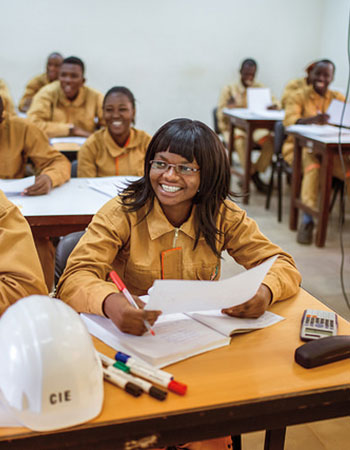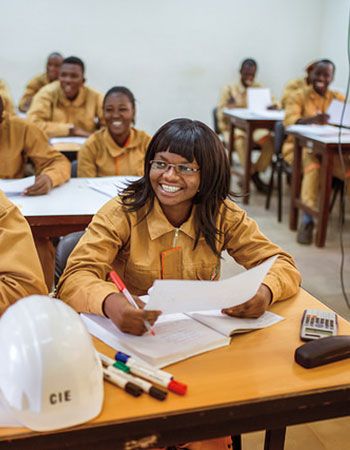A Roadmap to achieve Côte d’Ivoire’s 42 percent renewable energy target
Three years ago, in Paris, Côte d’Ivoire joined the global community in committing to address climate change. The country pledged to achieve 42 percent of renewable-energy generation by 2030. Given the potential for private sector investment in the sector, IFC took note and approached the Ivorian government to form a unique partnership combining years of expertise supporting global climate investments with country-specific knowledge and bottom-up innovation.

The partnership aimed to develop a practical roadmap to systematically identify challenges and build potential solutions to expand renewable-energy generation—by working with the private sector, government, and development partners.
Based on the government’s projections, IFC estimates that achieving Côte d’Ivoire’s renewable energy target in full can create a $9 billion investment opportunity by 2030. The key question is how to unlock private financing. After a year of dialogues between more than 100 stakeholders, the new roadmap highlights promising pathways toward attracting private sector investment while focusing on the government’s goals.
The roadmap charts a course toward generating a project pipeline by identifying entry points and necessary frameworks to ensure that investments are both consistent and sustainable. The roadmap addresses all major sources of renewable energy—hydroelectricity, biomass, solar, and wind—as well as other important topics such as strengthening the electricity grid and considering innovative off-grid approaches.
Download the report:
English |
French |
Some key findings include:
- Costs for solar photovoltaic energy are rapidly decreasing and in some settings are less expensive than fossil fuel-based power. Auctions and programs like IFC’s Scaling Solar initiative can help clarify the true price of solar development, making it easier for the private sector to chart a feasible investment pathway.
- Côte d’Ivoire has abundant hydroelectricity. Nearly 880 megawatts of capacity have already been developed, and this energy source will only continue to grow. The country can tap into new technologies and innovative business models within this already strong sector.
- Biomass is an exciting opportunity with strong potential due to the ample feedstocks provided by agricultural waste. New projects such as Biokala are demonstrating the viability of this source for utility-scale production.
- Wind energy is an untapped resource in Côte d’Ivoire that, with some resource mapping studies, could lead to promising investment opportunities.
- Supportive policy frameworks such as an updated grid code will strengthen feasibility of potential projects by ensuring transparent and reliable transmission.
Together, Côte d’Ivoire and the private sector can build on this partnership and continue to scale up clean energy and achieve dependable and cost-effective energy access for the people of the country. The roadmap is indeed just one step along a longer-term pathway toward 42 percent and beyond.
